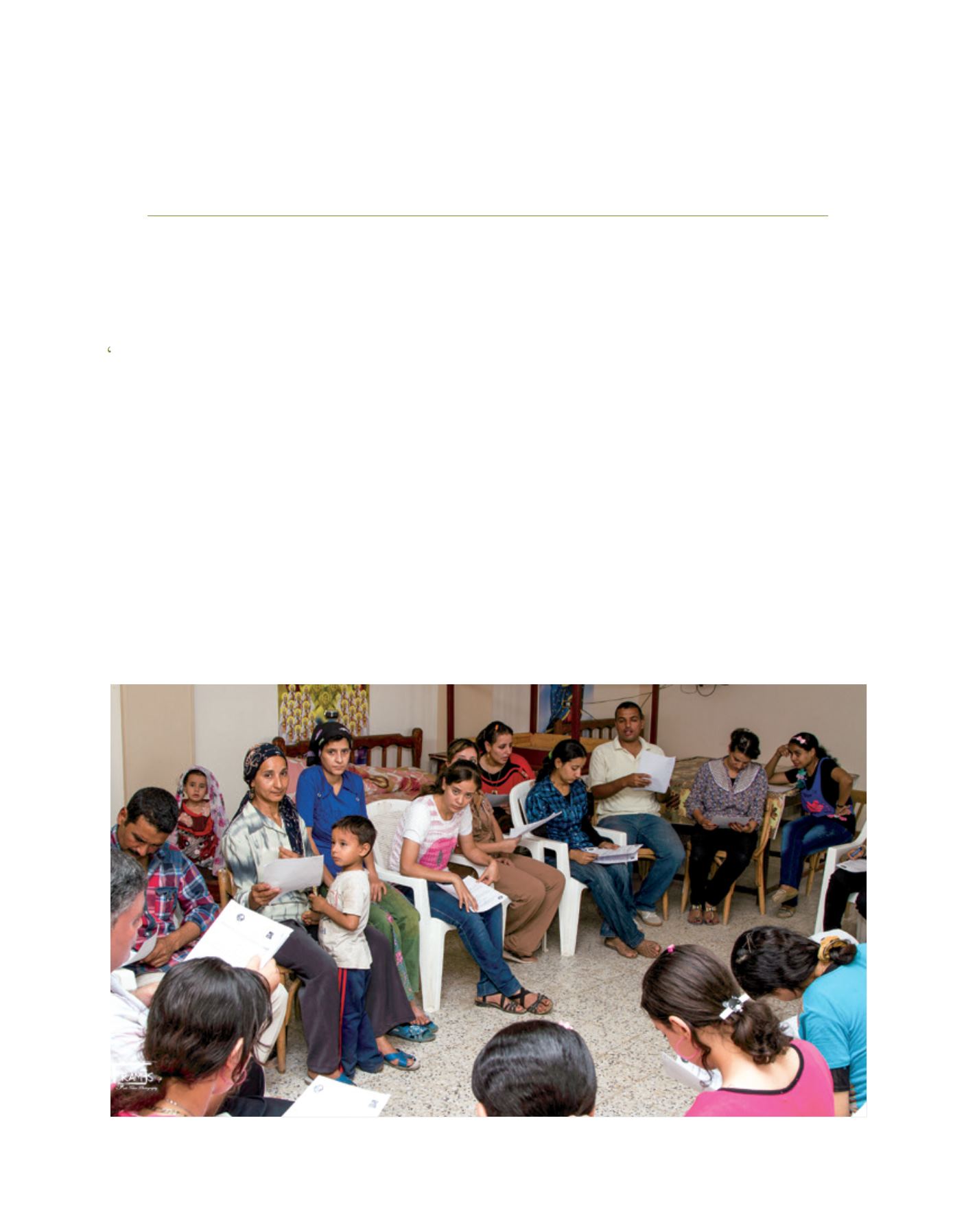

[
] 161
Engaging religious traditions in the
promotion of peace through social justice
Pierre Martinot-Lagarde, Special Advisor for Socioreligious Affairs, International Labour Organization
L
abour is not a commodity’, ‘decent work’, ‘peace
through social justice’ – these three mottoes
can provide some insights on why and how the
International Labour Organization (ILO) has engaged and
is now engaging with faith-based organizations. Such an
approach may be surprising for an organization whose
focus is on labour, and through labour on the economy.
Labour, however, is part of the lives of many individuals, from
childhood to retirement. It helps foster human relationships
and communities. Many religious traditions and groups have
addressed labour issues in their thinking and ethical commit-
ment. Dignity and solidarity, two values central to the decent
work agenda, enjoy a wide interreligious consensus. On the
same line, many traditions have also aimed at providing jobs
and social protection to their followers and beyond. To help
overcome social instability and provide greater social cohe-
sion, the ILO has explored in the context of Egypt how
interreligious cooperation can help in ensuring better access
to employment for youth. This also connects to the intui-
tion present at the foundation of the ILO and enshrined in its
constitution: ‘there shall not be peace without social justice’.
Labour is not a commodity
If labour is not a commodity, what is it? Labour is not a good,
labour is a not a merchandise, it cannot be exchanged or sold.
A negative definition sometimes tells more than a positive
one. The essential dimension of labour, the relational one,
makes it distinct, different from a good.
There is no labour without persons, individuals, communi-
ties, even societies. Labour is generated by people. They act,
sometimes they do, they repeat, they reproduce. A few times
they invent; in many instances we would love to understand
work as creation. More often, they transform something,
some raw material – coal, steel, plastics – into manufactured
goods. In many parts of the world, when people work, they
Image: ILO
Labour is part of the lives of many individuals, from childhood to retirement
A
gree
to
D
iffer

















